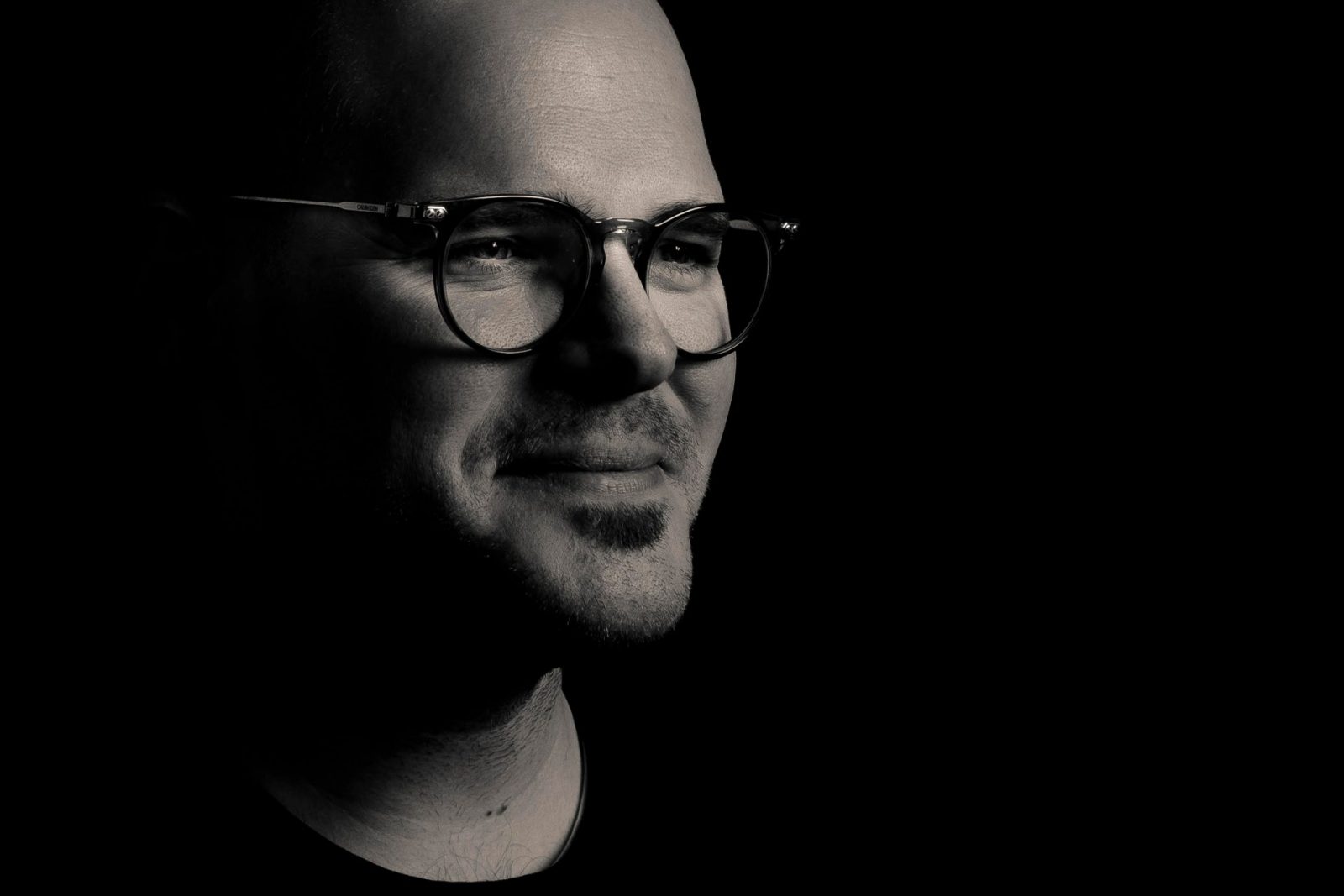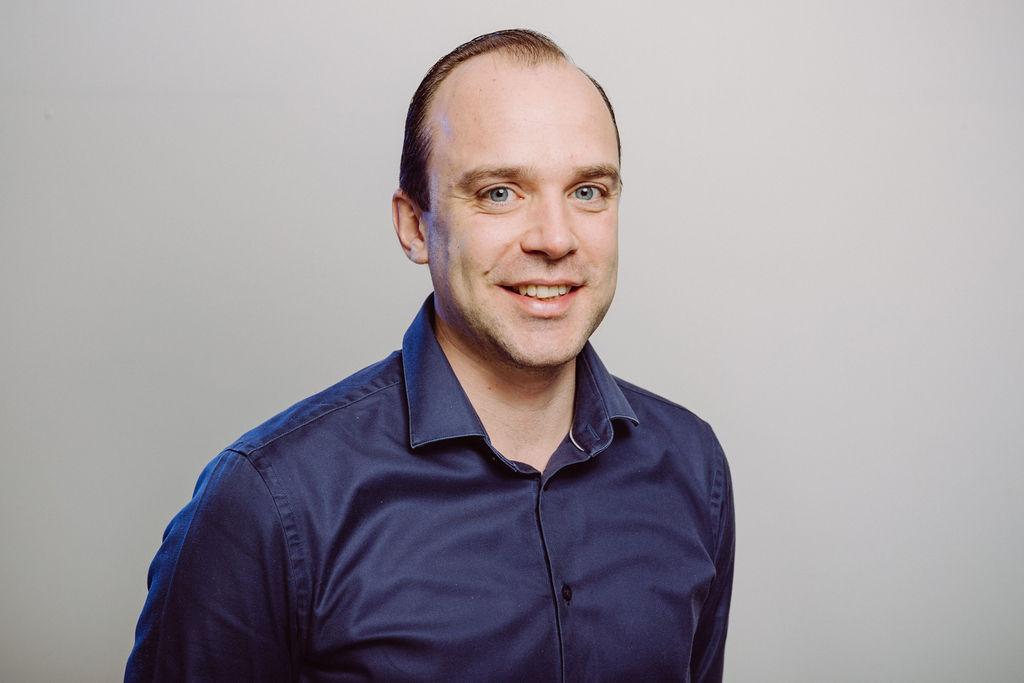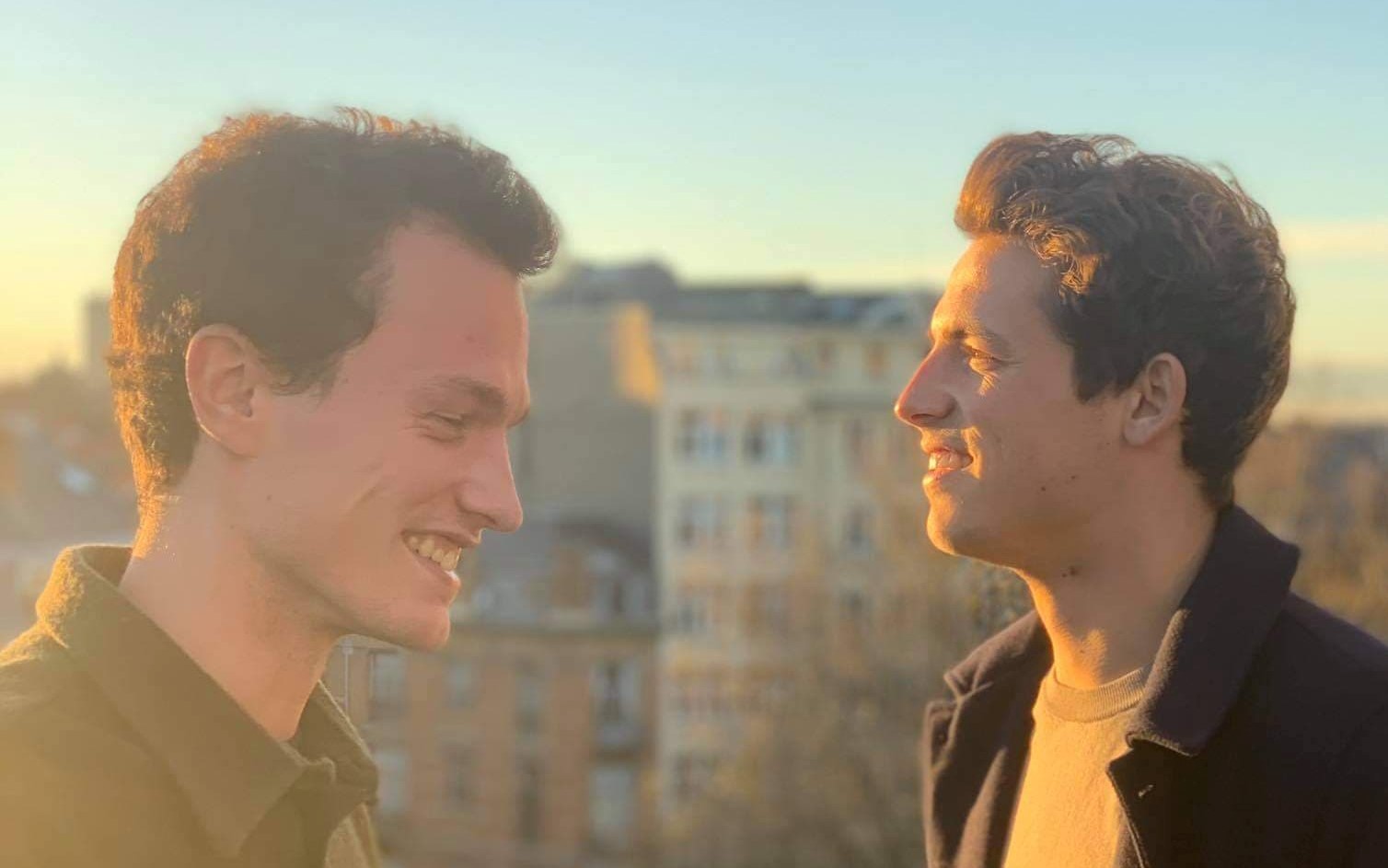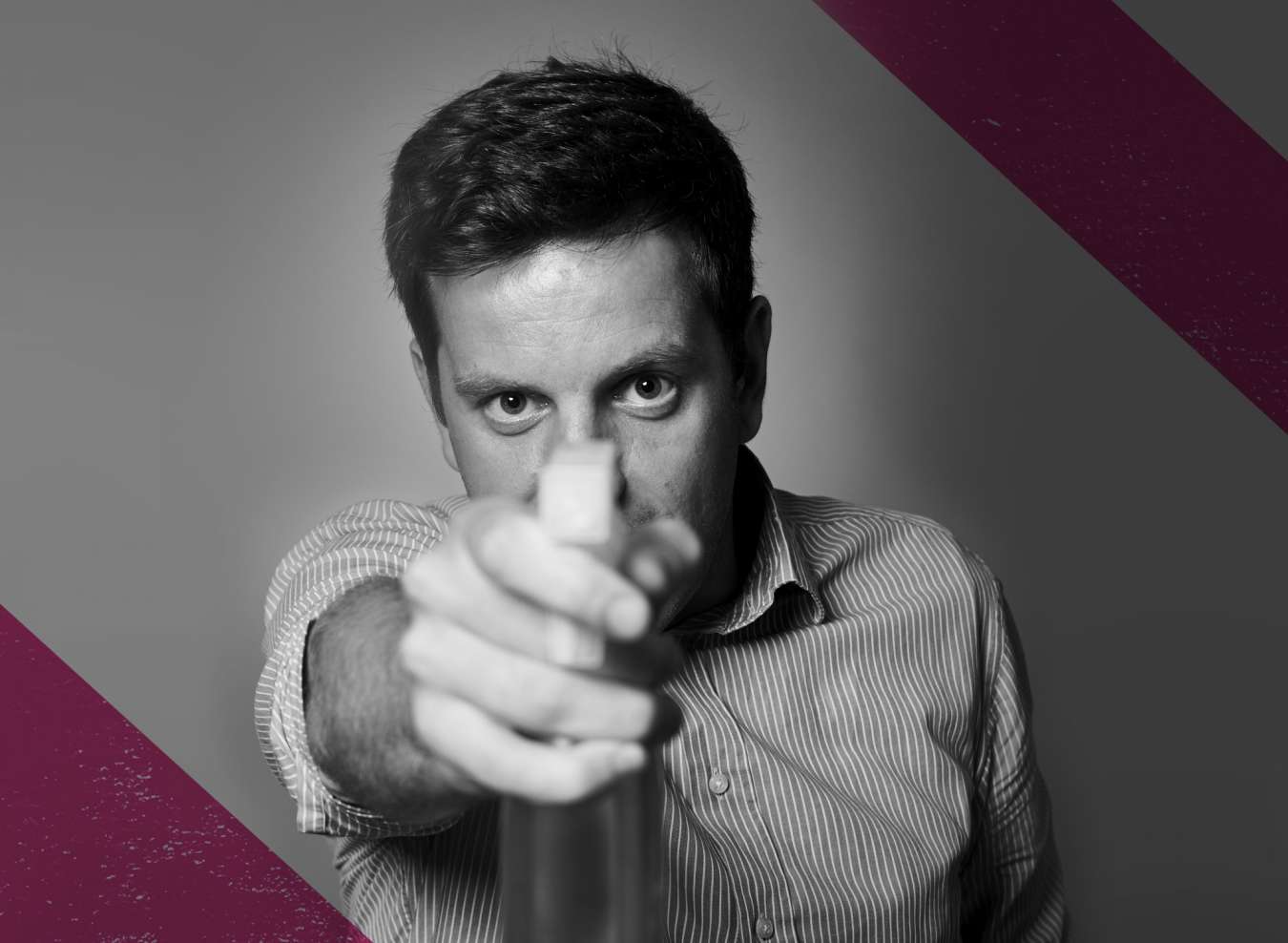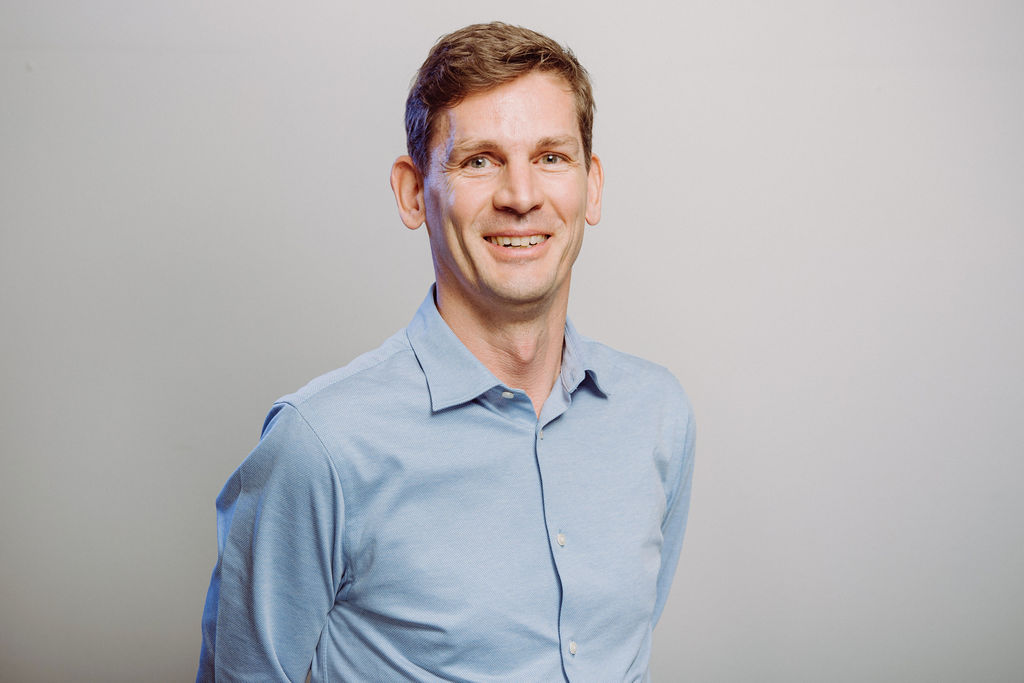These innovative start-ups are working to make the world a better place, but it doesn’t happen in 1, 2, 3:
“Getting an entire sector moving takes patience and, above all, perseverance.”
Standing still is going backwards. Or change is the only constant. We hear these types of statements about the importance of innovation almost daily. But merely uttering them will not bring about that progress. Fortunately, there are plenty of entrepreneurs who put their money where their mouth is and consider it their mission to innovate and improve their sector. So are the following entrepreneurs who are currently in the accelerator program at Birdhouse. How do they try to make the world a little more beautiful every day? And what are they doing to stay ahead?
Filip Roose (Fit Things)
In 2016, Filip Roose founded Fit Things. The start-up produces Slimbox, a machine that makes it possible to produce cardboard shipping boxes to order. Where did the idea come from? Filip: “Out of frustration! How is it possible that we can almost take people to Mars, but can’t manage to use a stupid fitting box when sending goods? Then when you start thinking about it as a nerd, a technical and practical solution quickly emerges.”
Progress is important according to Filip: “There is enough evidence that the status quo is not good. It means going backwards. But in the meantime, the exponentially increasing population is putting an incredible strain on the world. I hope to be able to take a little bit of steam off that world boiler with our current and future innovations.”
“How is it possible that we can almost take people to Mars, but fail to use a stupid fitting box when we send goods?”
Although the idea for his start-up was easily conceived, entrepreneurship turned out to be less straightforward: “We’ve had some serious setbacks, but we got through them with blood, sweat, tears and a lot of savings. Now that we have our product-market fit, it is just a question of growing. But building the machines costs an awful lot of money. A wrong assessment in that area could mean death, so it has to be thought through in detail.”
Filip finds the necessary guidance at Birdhouse: “The mentors help me to maintain my focus. I am also challenged a lot and they regularly take me out of my comfort zone. I’ve been able to get a lot out of the program, more than I had dared to dream!
Nicholas De Nil (Bizzcontrol)
As a freelance finance consultant at several companies, Nicholas De Nil noticed that non-financial managers had little interest in complex number presentations. Yet he found a way to get them on board with his story: “By using the latest business intelligence technologies, I always succeeded in making the complex subject matter attractive. Some people even looked forward to the monthly financial meetings!”
This is how the idea was born for Bizzcontrol, a tool that transforms complex accounting data into visually attractive and understandable reports and analyses. Together with programmer Lode Cools and business developer Wim Hoornaert, both also co-founder, Nicholas has set the bar high: “We want to get the entire accountancy sector moving. It is clear that many accounting firms share our vision and realize that they need to adapt their services to remain relevant. Our tool helps them to do so.”
“By surrounding ourselves with mentors and other experienced entrepreneurs, we are confident that we will make fewer mistakes that will cost us time and money.”
“Getting an entire sector moving takes patience and perseverance. Fortunately, we are supported by several independent organisations that are actively helping the sector in this evolution,” continues Nicholas, who also stresses the importance of innovation. “In order to stay ahead, it is important that you surf along with new technology waves from the start. However, it is essential that you do not see technology as an end in itself, but as a means to enable inspiration and innovation.”
Now that their product is ready, the focus for Bizzcontrol is on building a talented team and a customer centric sales process. In this, it now receives support from Birdhouse: “By surrounding ourselves with mentors and other experienced entrepreneurs, we are confident that we will make fewer mistakes that will cost us time and money. This way we can grow Bizzcontrol faster into a successful company.”
Chiel Haesendonck (Ask Waldo)
After completing his studies in International Business, Strategy and Innovation, Chiel Haesendonck, “like so many economists”, started work as an advisory consultant: “I learned a lot, but something was missing. I was really looking forward to starting my own project, something I could throw myself into. That’s how I started with Robin Vanderschueren and Thomas Thaens Ask Waldo in the summer of 2020.”
The three co-founders developed a technology that connects and visualises knowledge and expertise within large companies. This allows employees to find the right colleague for their problem more quickly. Chiel: “All three of us saw the same communication problems at organizations in different sectors. That gave us the confirmation to start doing what we are doing now: providing large organizations with a tool to break silos, engage employees and develop a true sharing culture.”
“By having a presence in start-up communities like Birdhouse, you ensure that you are on the front lines of innovative ideas.”
Where is Ask Waldo’s biggest challenge right now? “On the one hand, we want to make the solution plug and play, a technical issue. On the other hand, we are working on the positioning of our product. An exercise that is more complex than it seems, since it is a relatively new concept. That makes peeking at the neighbors just a little bit harder. Furthermore, we are also working on clear processes, so that we can start scaling after our trajectory at Birdhouse.”
In addition to Birdhouse, Ask Waldo is also participating in the Chilean accelerator Start-up Chile. Why that choice? Chiel: “By being present in these kinds of start-up communities, you ensure that you are on the frontline of innovative ideas. That way you’re always up to speed with what’s going on in that area. But you also often think: wow, if only I had invented that! That really gives you a boost. It’s like taking a daily ride on the start-up roller coaster!
Steven Van Den Ouweland (Distrilink)
Steven Van Den Ouweland is one of the co-founders of Distrilink, alongside Jelle Stas. The start-up helps consumer goods manufacturers to build their brands through online marketplaces. The step to entrepreneurship went via a detour: “As a student I already wanted to be an entrepreneur, but I graduated during the economic crisis of 2008 and therefore chose for a permanent job. When I came in contact with Distrilink as Head of Sales of People Against Dirty 11 years later, the ball started rolling and I went for it after all!”
Distrilink was founded in 2019. Steven turned out to be the missing link in the founders team: “At that moment I wanted to onboard Ecover, a brand from People Against Dirty, on Bol.com. For that I needed help from a third party. That third party was Distrilink, who at that time developed a platform for a distributor of baby stuff. Together we then applied that same platform to Ecover.”
“We need to balance current and future challenges and start investing in them appropriately.”
Being an entrepreneur brings other challenges than a permanent job: “Until now I have always worked for companies but now I have to work for a company. This is the first time for me and I hope to learn this at Birdhouse. We are also going to look at how we can grow sustainably without going too slowly or too cautiously. We must find a balance in the current and future challenges and invest in them appropriately.”
According to Steven, the corona has ensured that e-commerce has definitively caught on in Belgium. The pandemic therefore provided the necessary support for Distrilink, but also for companies that want to make the step to online sales: “Our smart solution allows all local Belgian manufacturers to connect to the online marketplaces. This way we create an equal playing field and indirectly do our part to support our economy.”
Niko Lecluyse (Breezo)
Breezo ‘s probiotic misting ensures improved air quality and hygiene, even in hard-to-reach areas during cleaning. How did founders Niko Lecluyse and Stefan Van der Cruysse get the idea for this innovation? Niko: “My partner used to have a cleaning company and always found it difficult to get hoods and air ducts clean. When he came into contact with probiotic cleaning methods, it turned out to be the perfect solution.”
The two founders then widened their scope: “As our idea came to fruition, we realized more and more that the spaces in which we live and work also needed an upgrade. This is how we partly shifted our focus, without losing sight of the original idea. With our solution, we can reduce the daily inconveniences caused by a poor indoor climate and create real comfort for people.”
At Birdhouse, Breezo is currently facing several challenges: “We are seeing more and more pressure on daily operations as demand is increasing significantly. It is therefore very important to set the right priorities. In order to be able to handle future demand we are looking for funding to further grow our organization, especially with sales profiles. Next summer we will start a Winwinner campaign for this purpose.”
“For innovations, the golden rule for me is that you always try to avoid additional new problems.”
Niko also sees plenty of opportunities for new applications of probiotics: “Our sector is still at the beginning. We are currently seeing exponential growth in research into its operation and benefits. Many applications will be developed in the coming years. For me, the golden rule for these innovations is that you always try to prevent additional new problems. They do have to end up being a net gain for the entire society.”
“Innovation and change is the only constant,” Niko continues. “In order to keep up, we strongly believe in building a broad network that also comes up with its own innovations. For example, we were recently tipped off by the CEO of a French scale-up to join them in surfing on their new technology. Of course it requires the courage to be transparent and open, but you gain a lot. Ultimately, it’s a two-way street.”
